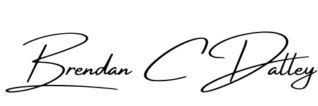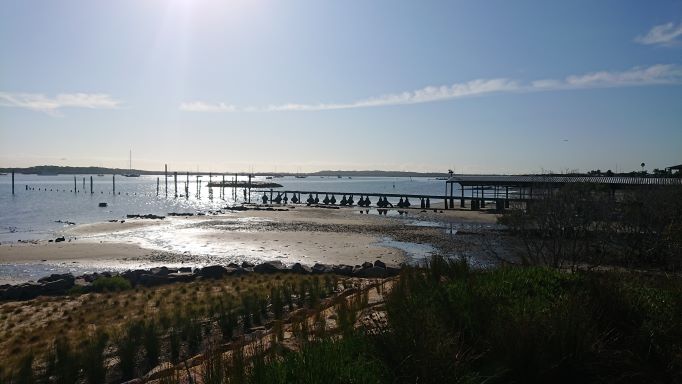There is power in knowing yourself. I’m not talking about how well you like your steak cooked or what your favourite sport is. I am talking about the subtleties of your emotions. Knowing those things that trigger you and send you downward. Those things that eat away at you slowly. I’m talking about knowing your limits. I guess I am saying what Dirty Harry said best. “A man has got to know his limitations.”
If you look at a lot of active people in their late thirties and early forties, many of them will have had some form of knee surgery. In many cases the need for this has arisen because they just didn’t realise that they were aging. That their knee could no longer bend the way it did at twenty. These people (myself included) didn’t see the writing on the wall. They ignored the twinges and the late night aches. They assumed that they would go on like they always did. It is the same with emotions.
Life’s signposts
Emotions are life’s signposts. How we react to something is generally a guide to its value. There are natural times to be happy or sad, relaxed and joyful or stressed and frustrated. These emotions, when kept in check, are a good thing. The trouble comes when one or two particular emotions get out of hand and won’t go away. This is when it is good to be observant about how you are coping. When it is useful to know yourself.
Anxiety, as an example, can be a good thing. It prepares us for stressful situations and warns us of potential trouble, then it goes away. The trouble comes when anxiety won’t switch off or gets heavily out of balance in specific situations. If anxiety takes over, it can be awful. Living with rampant anxiety is not unlike being in ‘flight or fight’ mode all the time. Knowing that something makes you anxious can enable you to either avoid that situation or prepare appropriately for it.
We are all different
We are all made differently. Take your average siblings for instance. You have one hundred percent of the same DNA and similar upbringings and culture, yet if you compare most of them, they are completely different from each other. The point is that we all have our own individual weak points and struggles and that is okay. There is no right or wrong or stronger and weaker. We all have different blind spots.
Look at highly trained soldiers. In many cases they have experienced and survived horrific circumstances that most of us can’t even imagine. Often, when PTSD bites, it isn’t on the frontline, but afterwards at home. Sometimes something small and comparatively insignificant brings it on for one, while it doesn’t affect another. This is because we are all made wonderfully different. It is personal.
The daily grind
PTSD is mostly related to a single or several specific events. In the case of frontline workers, it can be relatively straightforward to identify when things changed, unless they are in denial about what they’ve been through. For most of us, however, we do not experience intense moments on a day to day basis, so noticing when emotional trouble starts is a much more subtle thing. In many careers, stress builds up over time. Added to this, a modicum of stress in a variety of areas can add up to a lot of pain. Work, family, health and social issues, when combined, can create a powerful sense of being out of control or even feel like impending doom.
Denial
I like to use the idea of persistence of vision to explain denial of our circumstances. Just like when the image from a camera persists at the back of your eye for a split second and then overlaps briefly with the next image to create the illusion of movement, so it is with stress. Life isn’t always clear cut. Ideas and experiences overlap each other and blur the lines. In many cases, we keep on keeping on, long after a situation has become unviable, because that is what we have always done. An outdated image of ourselves persists long after it is no longer accurate.
The story of boiling a frog comes to mind. If you plop a frog into hot water, it will jump right out. Self preservation at its finest. If, however, you put a frog in cold water and slowly heat it up, it will stay where it is till it is cooked. (No frogs were harmed in the creation of this metaphor). In many cases, this is metaphorically the same for humans and the reason it happens is because the human ignored the warning signs.
Know your limitations – take time out
This is why it is really important to know both what makes you tick and what wears you out. It is important to take time for yourself and monitor your emotional vital signs. A little healing time each day can save a huge amount of healing time later on. It is during these times that you should do an honest stock take of your life. Ask yourself what is going on in all your key areas and be honest about the effect it is having on you. Reflect on what, if anything, needs to change.
This time does not have to be negative either. View it as looking after yourself. If you are lucky enough to be in a great place, then find a way to be grateful. If you are struggling, learn mindfulness and be in the moment so that you might build resilience for the future. In the end, if you persist, you will notice that you become more attuned to your emotions. Instead of crashing later on, you will notice in the midst of stress how something is affecting you. This will allow you to take self protective action almost immediately.
Mindfulness – I know…again
I have been fortunate to meet with a number of fabulous Psychologists over recent years. I’m even related to one. Even though they all have different approaches and treatment options, they all agree on one thing. Mindfulness works. Mindfulness is one thing that you can do that builds resilience, creates calmness and teaches you about yourself. Every one of them has a mindfulness habit, so they practice what they preach. Look into it if you haven’t already.
A life mechanic
Just like a good mechanic can listen to an engine and recognise good noises and worrying pings, so we need to be with ourselves. We need to recognise when we are out of tune and take time to fix it. We need to know when we’ve been running flat out and take time for preventative maintenance. If we know something is wrong, but aren’t sure what, we can get help for it.
Don’t be afraid of admitting you are struggling when you notice it within yourself. I really admire those people I know who rarely take a day off because their work is important, but are tuned in enough to themselves to know when they have to. They succeed because they know themselves enough to make the call. Take time to know what makes you tick.
Related links
Escape to resilience » The Good The Bad and The Unrelated
Daily Calm | 10 Minute Mindfulness Meditation | Letting Go – YouTube


After nearly 2 years of Covid it is time for a timeout. We have been successful due to existing relationships. We all need a break now & a chance to rebuild relationships. I don’t believe in the ‘new normal!’ We need some good old rest & recreation and some relationship build 🙂
You are a wise man indeed.
Pingback: Beneath the surface » The Good The Bad and The Unrelated
Pingback: Being Judgemental » The Good The Bad and The Unrelated